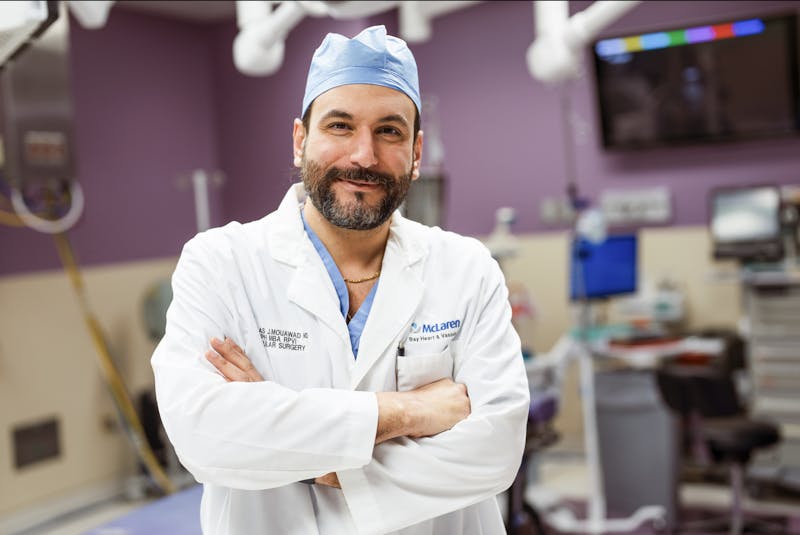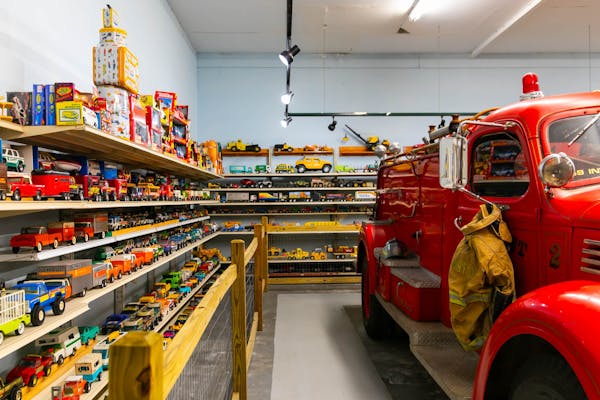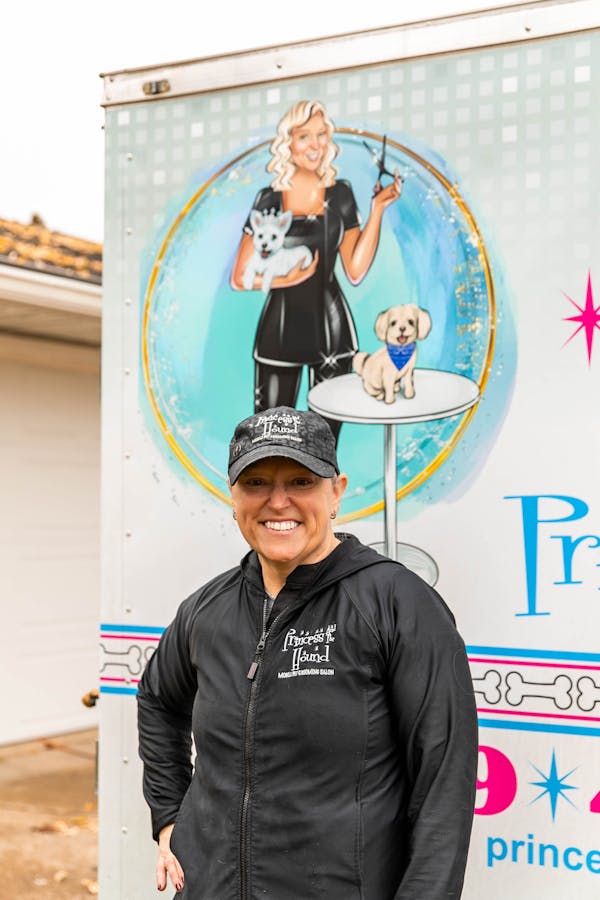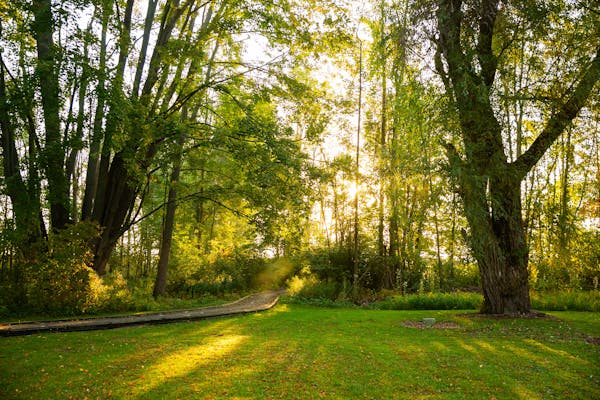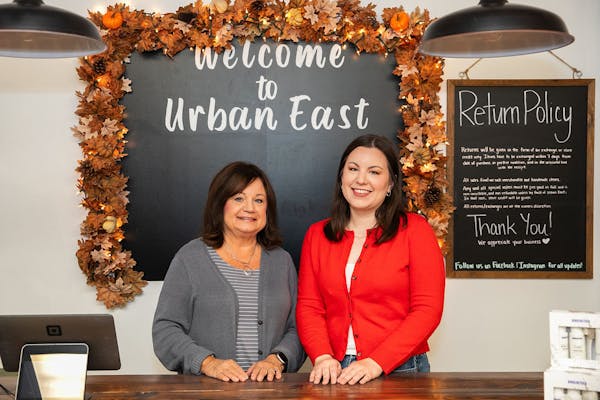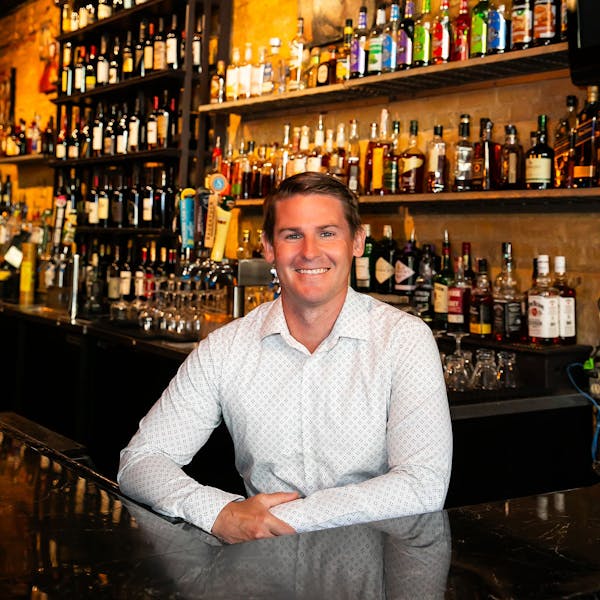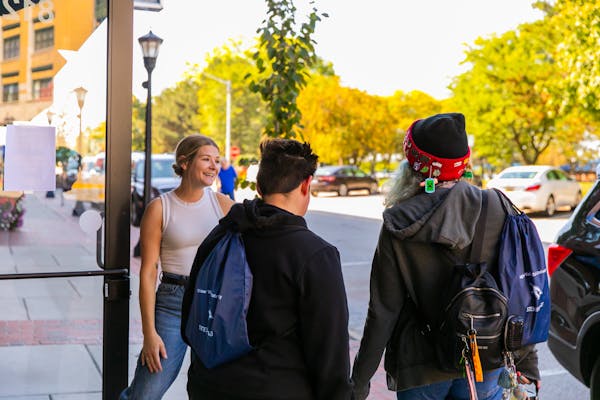“It’s a real honor to be named one of the top 200 vascular surgeons in the United States by Newsweek. I was surprised and humbled when I heard about it from a colleague of mine. Newsweek did its own independent data analysis, so we had no idea until it was actually published. I’m honored by the recognition.
More importantly for me, the honor is really to be able to take care of our community and give them high level care here at home instead of them having to travel to get it. They don’t have to drive hours and hours to a larger city. The fact that we’re about to offer that type of care, with that type of quality, and these kinds of outcomes close to home benefits everybody, and most importantly, our patients
Again, I'm just honored to be able to take care of people, in their greatest time of need with their most precious asset, which is their health. I want to say thank you to our community and to the patients for trusting us with your care.
That's a decision I don't take lightly at all. It's a difficult decision, so thank you. It’s an honor, but the thanks really goes to them for allowing us to take care of them in their time of need.”
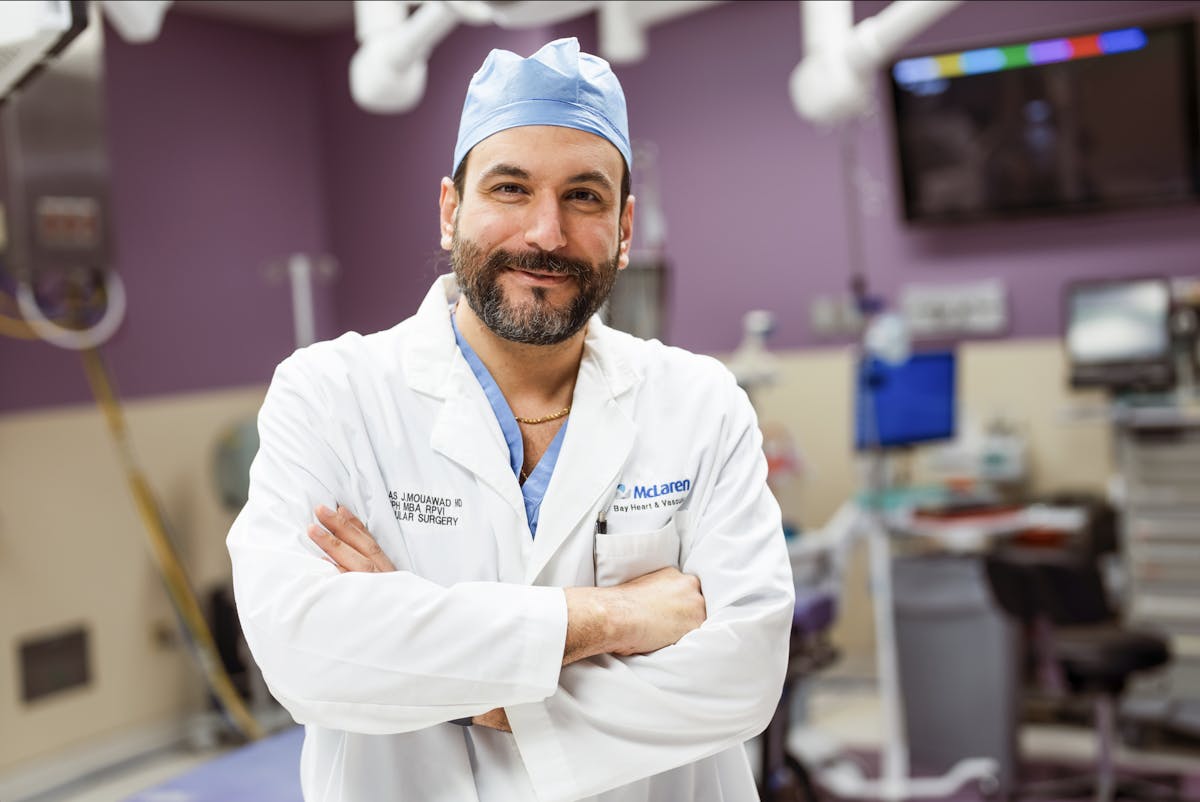
“I grew up in Dubai. It was amazing there, but I feel like I got the short end of the stick because it wasn’t like you see now! It was very different many years ago. But I had a great upbringing, and I really enjoyed it. My parents still live in the area, between there and a small island called Bahrain. It's still near and dear to my heart. I also got the opportunity to fly around and live in a lot of different places: North America, Europe, the Middle East and Asia. I really can't say enough about my upbringing. I really feel very fortunate.
Growing up, I was a big fan of science, specifically chemistry. I was going to do organic chemistry, but I was also really involved in the health sciences, so I thought, why don’t I look at medicine? And I really, truly enjoyed it. I’m a ‘concrete’ kind of person and I like to see things change directly in front of me, so moving towards the surgical disciplines made a lot of sense for me.
I also just think life is very important. There are so many things to see, so many things to enjoy and experience, when you see people in what is sometimes their most difficult time of need, the thing you really don't want to see, particularly in some of their eyes, is regret. There are so many things people can enjoy and I want to help them do that.
I spent some time in Canada for medical school, then I went to Dublin, Ireland and spent seven years at the Royal College of Surgeons (and it’s true—the Guinness does taste different!). It was fantastic. Those were my formative years! I got to meet a lot of people, travel around Europe, see different cultures. I adored it. I actually got to go back in April because I was invited to speak at their vascular conference—I just think that means I’m getting older!
After Dublin, I moved to Michigan and finished my general surgical training and spent five years in Ann Arbor. After that, I went to—I’m going to say it—THE Ohio State University. Columbus was fantastic. It was a great training program. I love the town, and have a lot of really good friends there. Actually, one of the guys I met ended up in Bay City, and it’s because of him, I decided to join him at McLaren Bay Region here in Bay City, Michigan.”
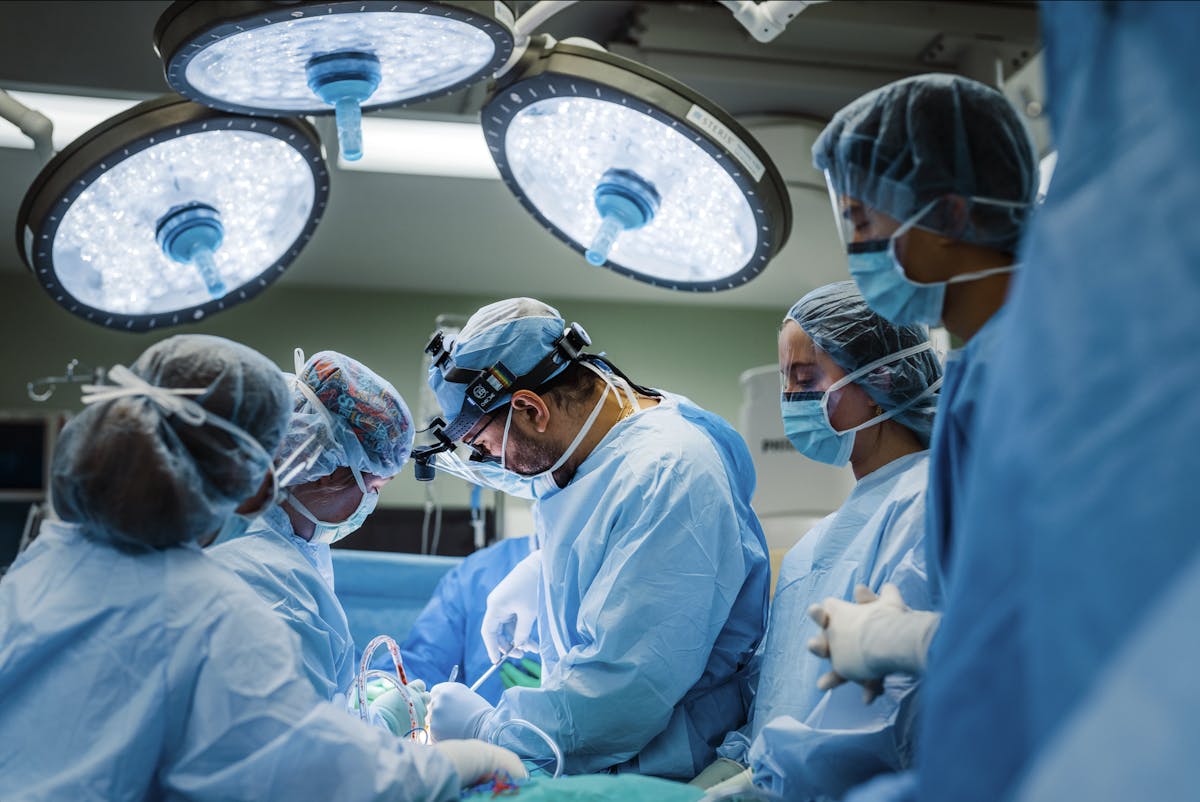
“For me, vascular surgery is just such an interesting specialty. But it's not talked about a lot because it doesn’t deal with things like the heart or the brain. A vascular surgeon deals with blood vessels, every single blood vessel from the base of the skull down to your tippy, tippy toes. And it's such an interesting specialty because everything in the body has a bloodflow; the kidneys or your spleen or your stomach or your gallbladder or your leg or your arm or your belly. It’s the variety in vascular surgery that makes it very interesting to me.
Every day is different. One day you're helping people deal with their stroke, the next day it's gangrene, and the next it's an aneurysm, and some days, you're dealing with all three!
And we don't just deal with blood flow to the organs, but also blood drainage, which are the veins; things like varicose veins, leg swelling, blood clots in the lungs, blood clots in the legs, all of that.
It's also great because there is often more than one way to deal with a particular problem. As long as you copme up with a safe and durable solution, then that works!
But what I really love with vascular surgery as a whole is that it's a speciality where you really develop a strong rapport and relationship with your patients. Not everybody needs an operation! So I can help them with medical management, blood pressure meds, and their lifestyle changes. There are ways to manage them with very minimally invasive type surgery, what we call endovascular: things like stents and balloons.
Then there's maximally invasive operations, which are large resections where you have to replace things that are either infected, not working, or that are dangerous. There's a great variety.”
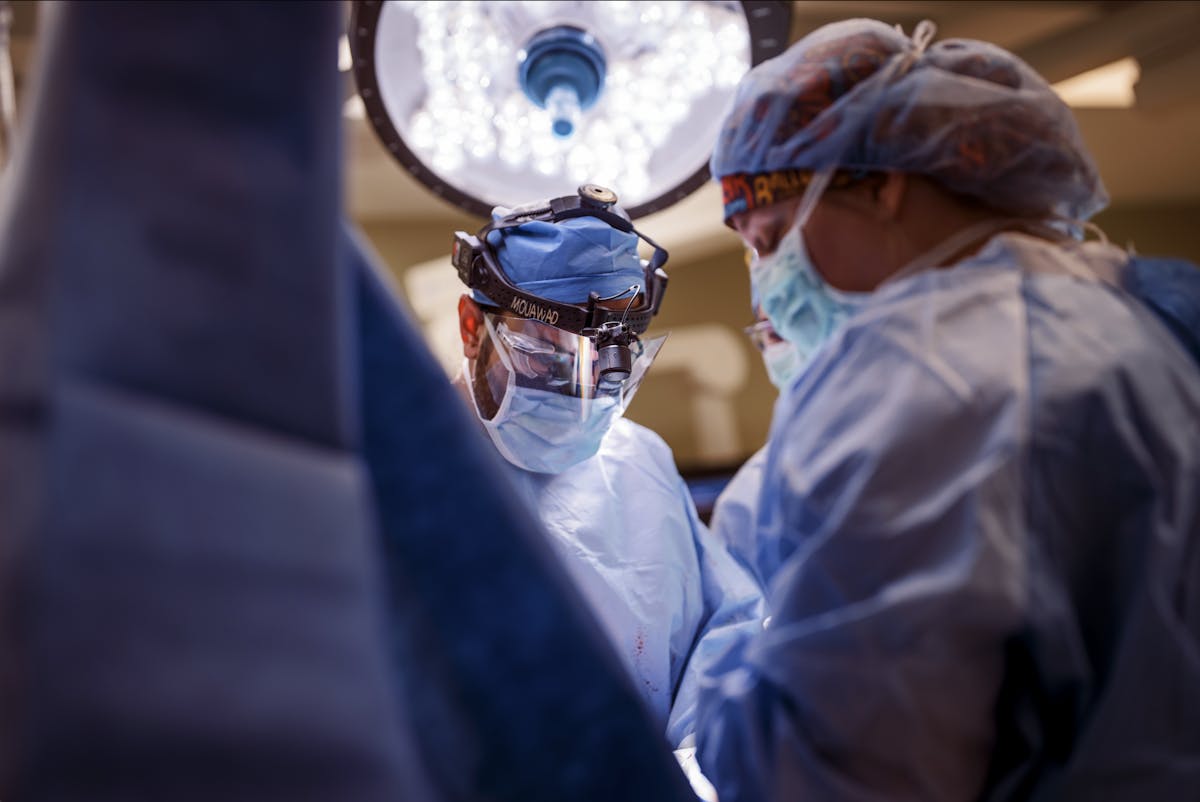
“I’ve been at McLaren Bay Region here in Bay City, Michigan for ten years. It's been great! I’ve stayed because I love taking care of patients, we’ve developed pretty aggressive programs, and brought things to the community that were not available here before.
For instance, the TCAR Stroke Prevention Procedure. TCAR stands for Transcarotid Artery Revascularization. TCAR is actually a newer procedure where you fix a blockage in your carotid artery.
The carotid arteries are what supply your brain. If they get severely narrowed or if they get completely blocked, it can cause a stroke. So before they get completely blocked, we want to fix it and you can fix that usually with a stent if you don't fix it the traditional way, which is by removing or cutting out all the disease.
The TCAR procedure is where through a small incision, usually at the base of the collarbone, we can get up into the carotid itself and open it up by deploying a stent in there. Patients do very well and the risk of having a stroke is very, very, very low.
That procedure was not available before I got here, and now we do the most in the state of Michigan. And it's, it's a, it's, it's a very well tolerated procedure. Now, not everybody qualifies for it. I think that's important.
What's important to know is that one procedure is not necessarily better than another. Some are preferred in certain situations and certain anatomies and others are preferred in others. A good vascular surgeon is able to tailor what procedure works best for different people. Some procedures just work better in certain scenarios, and some work better in others, all with the same equal benefit.
But I also want to state that what I try to do the most is to NOT operate. I think a lot of the public assumes because you're a surgeon, you want to do surgeries all the time. But that's not true at all. We don't want to operate, I don't want to operate on you unless I absolutely have to. So when we're making the decision that you need an operation, it's a shared decision that you and I discuss and agree that it’s the best plan of action for you. If we can avoid the risk of surgery, it makes both of us very happy.”
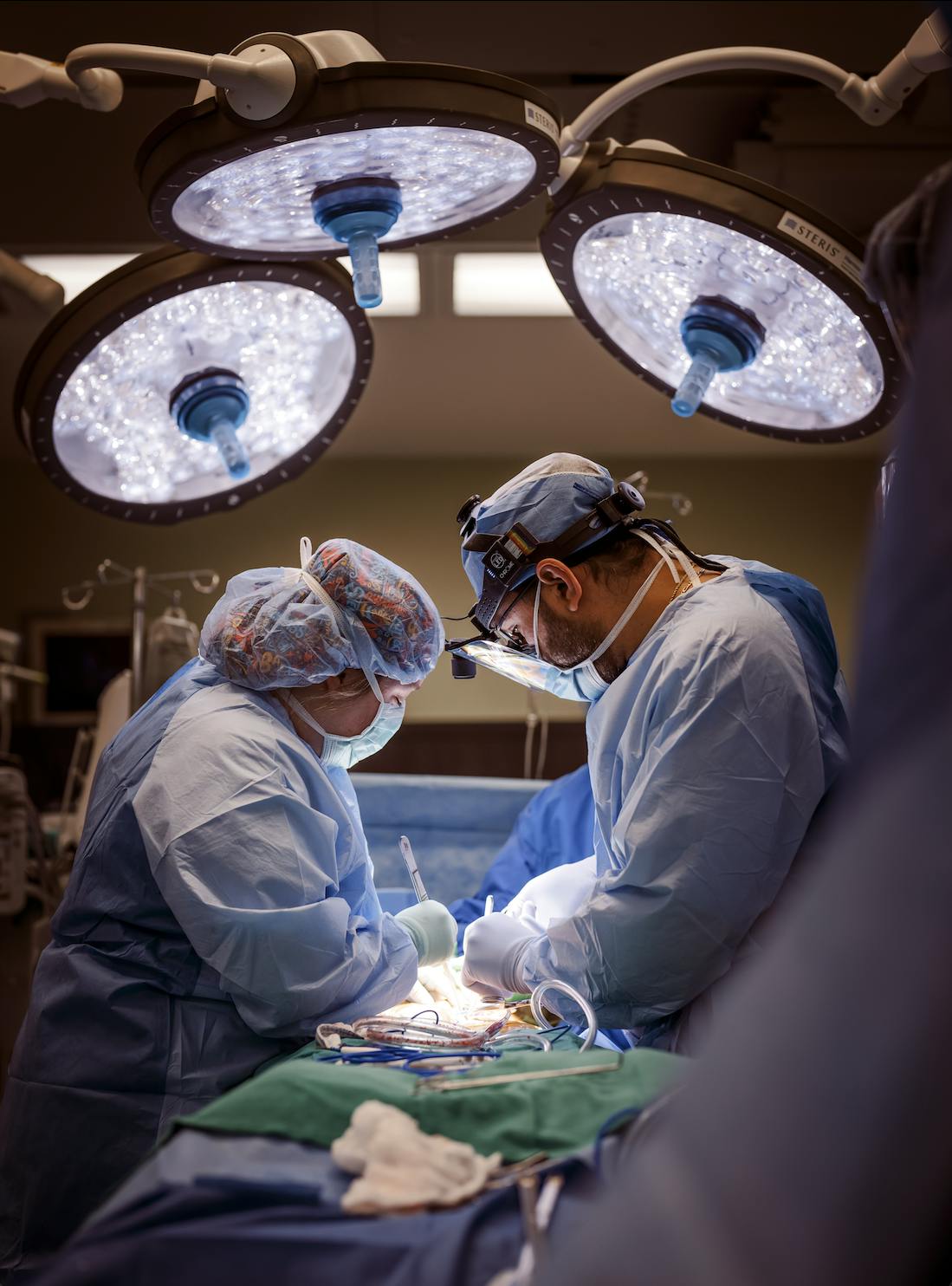
“I think being a good surgeon is something that emanates from your personal character. You want to have the highest level of integrity. You want to have the highest level of honesty. That’s important. You need to place your patient and their care above your personal needs, and with that, I want to give a shout out to my wife and my family because I spend a lot of time at the hospital and they take the brunt of that. Because I want to take care of people, sometimes that means there’s less time I have with them. That's something that I really cherish them for.
Of course you need to know your material, you need to know what to do and what not to do. I think that goes without saying. But it’s equally important to have good character, and just be a good human.
Whether or not you're a surgeon or not, for us in our community, particularly our small knit community like we have here, there's no place for hate and all that.
Just be a good person. We're all here to enjoy life, enjoy each other, and take care of each other. We're all sharing the same resources, so why not enjoy it together?”
—Dr. Nicholas Mouawad, McLaren Bay Region
